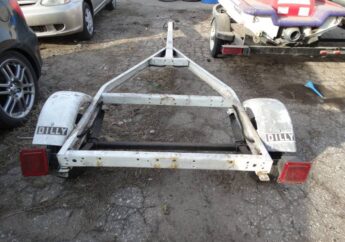8 Questions To Ask Before Buying An Auto Parts Franchise
by Abdul Aziz Mondal Automotive Published on: 24 November 2023 Last Updated on: 20 December 2023

Embarking on a journey into the franchise world requires careful consideration and strategic planning. Investing in such a venture demands comprehensive research to ensure a successful and sustainable business.
In this article, we will explore eight pivotal questions potential franchisees must ask before making the decision to purchase an auto part franchise. From financial aspects to growth opportunities, each question plays a crucial role in determining the long-term success of your franchise.
KEY TAKEAWAYS
- Understanding the franchise model provides stability but may involve ongoing fees and limitations.
- A thorough financial assessment is essential to minimize unforeseen challenges in franchise ownership.
- Effective market research guides decisions, ensuring offerings align with local demand for long-term success.
- A strong support system and marketing resources from the franchisor contribute to overall business success.
1. Understanding the Franchise Model
The franchise model, particularly for automotive parts, presents a structured opportunity distinct from the autonomy of an independent store. While it offers brand recognition and support, potential franchisees must carefully consider the benefits in relation to ongoing fees and autonomy limitations. The system brings stability and guidance, providing a proven business framework.
However, adherence to established guidelines is crucial, and potential owners should evaluate their comfort level within this structured environment. For those exploring auto parts franchise opportunities, the stability and support inherent in the franchise model can be a significant advantage.
2. Financial Considerations
Before embarking on this business journey, it is imperative to delve deeply into the financial landscape. This encompasses a meticulous analysis of not only the initial franchise fee but also ongoing royalty and advertising fees.
Equally important is estimating comprehensive startup costs, covering everything from inventory to equipment. A crystal-clear financial picture is not just advisable; it is crucial for ensuring a seamless transition into business ownership while minimizing the risk of unforeseen financial challenges.
Potential owners should embark on a thorough assessment of their financial capabilities and diligently explore various funding options to guarantee not only the establishment but the sustained success of their business.
3. Market Research and Competition
The cornerstone of a thriving auto parts business lies in meticulous market research. Beyond merely identifying demand, it entails a comprehensive analysis of competitors and an understanding of market challenges.
This data empowers potential owners to make informed decisions regarding the viability of their chosen location within the auto parts business landscape. Thorough market research is a strategic maneuver that transcends basic demographics. It delves into customer preferences, unveiling valuable insights that enable potential owners to tailor their offerings to precisely meet local demands.
This meticulous approach not only fosters a competitive edge but is also instrumental in securing long-term success within the dynamic and evolving automotive parts industry. In the realm of the auto parts industry, a well-informed market strategy is the bedrock of sustained growth and profitability.
4. Support and Training Programs
One key advantage of joining a franchise is the support and training offered by the franchisor. Potential owners should assess the level of initial training and ongoing support. A robust support system is crucial for navigating challenges and maximizing success in the competitive automotive parts market.
Inquiring about marketing and advertising resources is essential. Leveraging the franchisor’s expertise in these areas significantly contributes to brand visibility and customer acquisition. A franchisee’s ability to tap into these resources enhances their overall business strategy and operational effectiveness.

5. Franchise Agreement Terms
The franchise agreement is a foundational document outlining the terms and conditions between the franchisor and the franchisee. Potential owners should pay close attention to key contractual obligations, restrictions, and renewal terms. Understanding the legal aspects of the agreement is crucial for making an informed decision.
Seeking legal counsel to review the agreement ensures that potential owners are fully aware of their rights and obligations, minimizing the risk of future disputes. A clear comprehension of the franchise agreement lays the groundwork for a positive and mutually beneficial long-term relationship between the franchisee and the franchisor.
6. Track Record and Reputation of the Franchisor
Investigating the track record and reputation of the franchisor is a critical step in the due diligence process. The success stories of existing franchisees provide valuable insights into the potential for success within the franchise system.
Similarly, any history of legal issues or controversies associated with the franchisor should raise red flags. Franchisees should approach this aspect with a discerning eye, gathering information from various sources to form a comprehensive understanding of the franchisor’s credibility and commitment to franchisee success.
Related: Don’t Be a Fool, Maintain Your Car Parts!
7. Territory and Location Considerations
The success of a business is often closely tied to the chosen location and territory. Assessing the availability of exclusive territories, understanding location requirements and restrictions, and analyzing the potential customer base are crucial steps in this process.
Franchisees should conduct a thorough demographic analysis of their chosen location, identifying the target market and tailoring their offerings to meet local demands. This strategic approach enhances the likelihood of capturing a significant market share within the chosen territory.
8. Growth Opportunities and Future Expansion
While considering a business in this space, it’s essential to assess the potential for business growth within the franchise system. Understanding the support for opening additional locations, exploring avenues for diversification, and expanding services within the franchising industry are crucial aspects.
Franchisees should view their investment as a long-term commitment, with an eye on future expansion and growth opportunities. By aligning with a franchisor that encourages and supports expansion, franchisees position themselves for sustained success in the dynamic auto parts market.
In a Nutshell…
Investing in a franchise demands a strategic and informed approach. By asking these eight essential questions, potential franchisees can navigate the complexities of the franchising landscape, ensuring they enter into a partnership that aligns with their goals and values.
Remember, success in the automotive parts industry begins with careful consideration and a commitment to continuous learning and improvement.
Read Also:



































































































